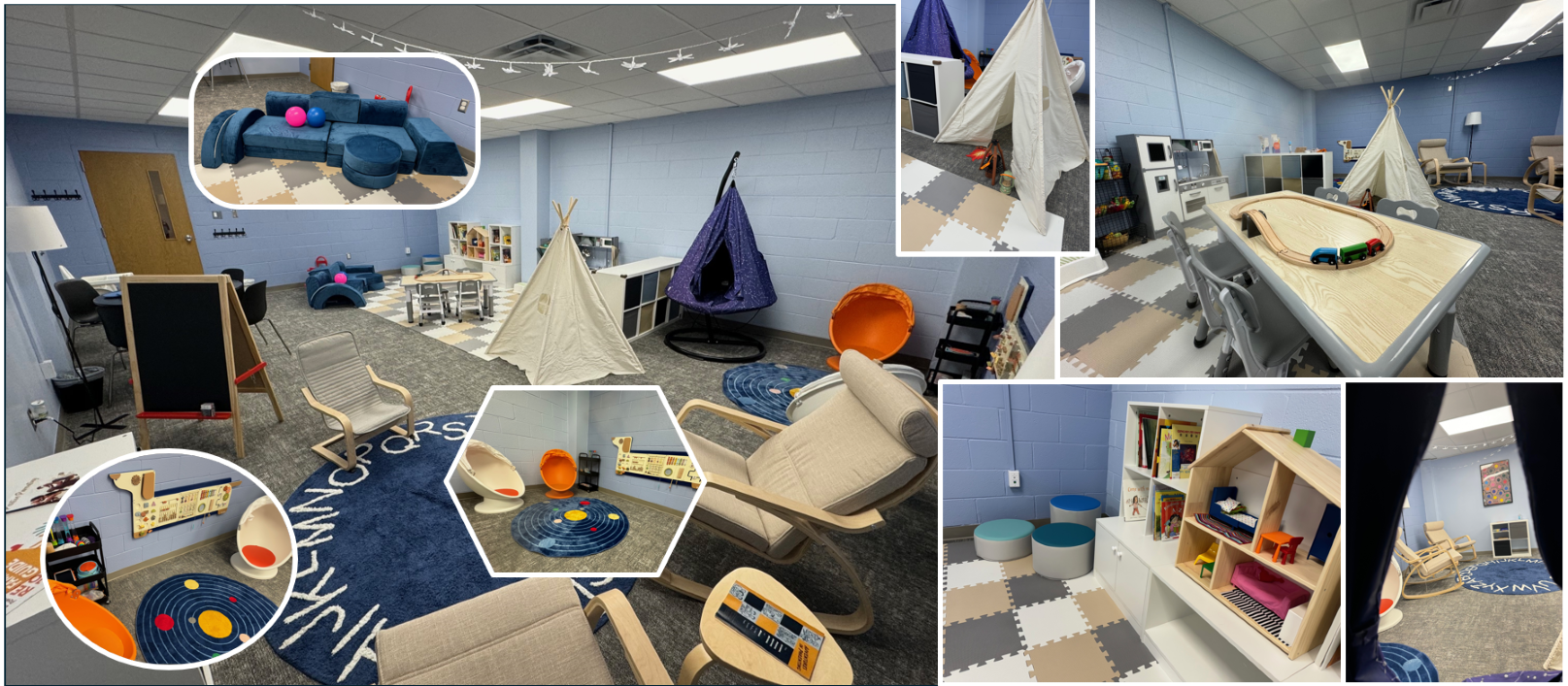
New and Innovative Ideas
FACT looks at EVERY detail in the way we serve families, children and our workers
IN-HOME VISITATION
ALL-IN-ONE SERVICE CENTERS
In today's evolving child welfare system, new approaches have emerged to enhance family visitation and support services. One such innovation involves incorporating in-home services and parenting training programs into the visitation process. This new way of family visitation recognizes the importance of maintaining familial connections while also addressing the underlying challenges that may have led to child welfare involvement. By providing in-home services, families can receive support and guidance within the comfort of their own homes, creating a more natural and less intimidating environment for both parents and children. Simultaneously, parenting training programs offer invaluable skills and strategies to help parents build nurturing and stable relationships with their children. This holistic approach aims to strengthen family dynamics and empower parents, ultimately working towards family reunification and long-lasting positive outcomes for children in the child welfare system.
NON-EMERGENCY
REPORTING
HOTLINE
The CPS HOTLINE is an essential resource that plays a crucial role in protecting children from harm. It serves as a lifeline for emergencies, providing immediate assistance and support in critical situations.
However, to ensure that this hotline remains available for those in urgent need, it is essential to provide mandatory reporters with an alternative helpline for non-emergency calls. By offering this alternative means of communication, we can better route calls that do not require immediate intervention to appropriate relief services. This ensures that families still receive the help they need while allowing the child abuse HOTLINE to prioritize and respond promptly to emergencies.
We recognize and collaborate with organizations like 211 and 411 service directories to connect individuals to provide support & resources.
MANDATED
REPORTER
TRAINING
Rethinking How We Use Mandatory Reporting: Striking a Balance
Mandatory reporting has long been a cornerstone of child protection efforts, ensuring that vulnerable children are not left unnoticed in situations of abuse or neglect. However, as society evolves, it is imperative that we critically evaluate and reconsider how we use mandatory reporting. While it undoubtedly plays a crucial role in safeguarding children, we must also acknowledge the unintended consequences that often arise.
Overreporting can overwhelm child protection systems and strain resources, leading to a diminished ability to identify and respond to genuine cases of abuse. By rethinking how we use mandatory reporting, we can strike a balance that preserves the essence of protecting children while also minimizing unnecessary burdens and providing a more holistic approach to child welfare.

BY THE NUMBERS
Nationally, only
47%
of parents reunified with
their children in 2021.
https://www.aecf.org/blog/child-welfare-and-foster-care-statistics
Children of Black families are overrepresented in cases of suspected maltreatment and CPS investigation. They are less likely to be returned to their families.
https://www.fftllc.com/blog/alarming-foster-care-statistics
Among Foster Youth,
1/3
of males &
3/4
of females
rely on
government assistance programs.
https://www.afs4kids.org/blog/29-surprising-foster-care-facts/

Together, we can strengthen families, through the community, for the community
DONATE TODAY
You and your help will make coordinating care possible and help save families.









